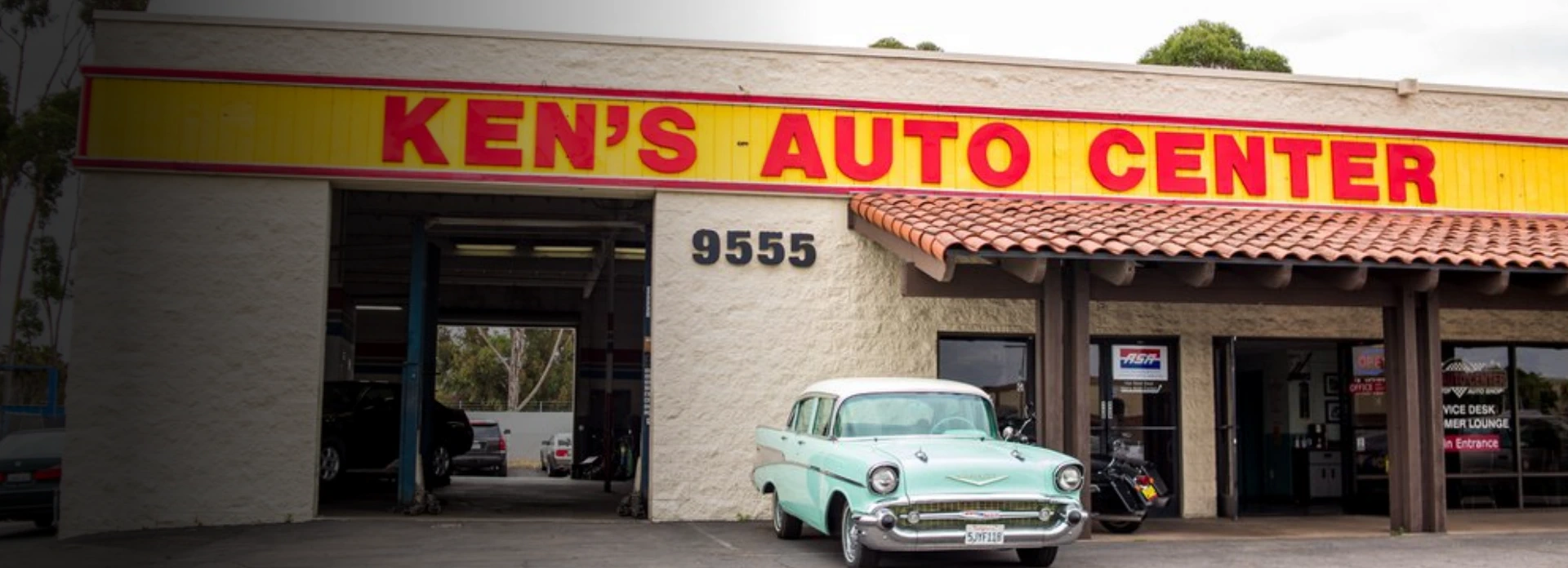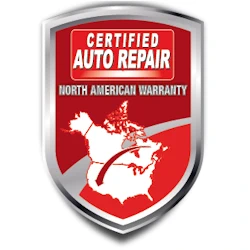
AUTONET TV
Archive for August 2025Your Vehicle's Hissy Fit (AC System)Posted August 31, 2025 4:42 AMWhen you hear hissing sounds coming from your vehicle, you might start thinking the worst. One type of hissing coming from around your air conditioner may be a normal sound, or it could be a sign of serious trouble. First - the normal sound. When you turn off your vehicle, the refrigerant goes from its high-pressure side to the low-pressure side. Some of those noises are normal. But when it hisses all the time, that's another story. One cause could be that the refrigerant is leaking. Air conditioners are fairly complex systems that involve various pumps, hoses, valves and motors. When your air conditioner is cooling, the refrigerant changes from a gas to a liquid and back. That refrigerant is under pressure, and there are many places it can leak from. A hissing sound can also be a failed valve in your air conditioner's compressor. It is what controls the refrigerant's pressurization. It's important to have this fixed fairly quickly after it develops a problem because when it isn't, that can lead to more extensive—and expensive—repairs. If you hear screeching coming from your air conditioner at the same time you hear hissing, your compressor may be on its last legs. It could also be a defective clutch. Any time you hear a noise you haven't routinely heard before, bring your vehicle to us so a technician can check the various components and properly repair the problems. Air conditioning systems are complex and are best handled by a professional with the right tools and equipment. When your AC has a hissy fit, let us cool it off and you at the same time. Ken's Auto Center Air Conditioning Maintenance at Ken's Auto Center in San DiegoPosted August 24, 2025 4:32 AM
Maintaining your air conditioning system means that you always have enough refrigerant to properly do the job. Small leaks in the vehicle's air conditioning system allow the refrigerant to escape and the system can't cool the air as well. We see that a lot at Ken's Auto Center in San Diego. Ken's Auto Center Let?s Shift Gears (Transmission Fluid Replacement)Posted August 17, 2025 4:53 AMIf you have a vehicle with an automatic transmission, you probably never think about gear shifting. When motor vehicles were invented, all of them had to be shifted manually. But that wonderful self-shifting transmission, referred to these days as simply an “automatic,” changed everything. Automatic transmissions have a lot of moving parts, and they are bathed in a fluid that keeps them lubricated and cool. That fluid also is vital to the whole gear shifting process. As you might imagine, the longer that fluid does its job, the more chance it has to pick up some contaminants. Sometimes a leak will spring up in an automatic transmission. Dirty transmission fluid or not enough of it will both create problems. It may cause your Check Engine light to come on, or your transmission may run rough and make strange noises. The best strategy is not to let it get to this point. That means you should have your transmission fluid replaced at regular intervals. Your vehicle’s manufacturer recommends how often you should have your transmission fluid changed. You should also have the fluid checked at regular intervals to detect if any problems crop up before that recommended interval. They’ll check not only the level but also inspect its condition. Keep in mind that most automatic transmission problems are caused by overheating. You can reduce your chances of transmission failure by making sure your transmission—and its fluid—is regularly inspected and the fluid is replaced when it needs to be. Ken's Auto Center Beginning to See the Light (Check Engine Light Diagnostics)Posted August 10, 2025 4:47 AMIt's a light many drivers fear they'll see turn on at the most inopportune time. It's the one on the dash that says "Check Engine," "Service Engine Soon," or it may be simply an engine-shaped light. Your first instinct may be to pull off to the side of the road and turn off the engine. The truth is that Check Engine light can be pointing to problems as simple as a loose gas cap. But it could be as serious as a severely misfiring engine. Don't ignore it because it's there to help you avoid an expensive repair it is designed to alert you to, to tell you something's not quite right. Your vehicle has a connected system of computers and sensors constantly checking to see that all systems are working the way they should. If something isn't, the system will turn on the Check Engine light. If it's flashing, that could be serious. Look at some of the other warning lights or gauges such as heat or oil pressure. They could be telling you your vehicle's problem should be checked right away. In that case, if you can, safely pull off the road and shut the vehicle down. If your vehicle loses power and the Check Engine light is on, try not to push the demands you are making on the engine, such as towing or accelerating hard. Simply put, a flashing Check Engine light should be checked out by a professional as soon as possible. If the Check Engine light is on steadily, manufacturers say it means there's a problem, but it probably doesn't require immediate service. The system is designed to remember the problem it found and store it (as a code) so it can be retrieved later. When you do bring your vehicle in to have us see what's behind the Check Engine light coming on, we’ll hook your vehicle up to a diagnostics tool that can reveal the clues the engine's computers have stored. It takes a trained technician to understand those clues, like a doctor who can interpret a patient's symptoms and come up with the correct diagnosis. Some newer vehicles can even be checked remotely. Once we figure out the problem and repair it, you'll be back on the road again. It's nice to know the Check Engine light is your sentry, standing by to alert you the next time you begin to "see the light." Ken's Auto Center Beware Dangers of Spring Driving (Seasonal Driving Tips)Posted August 3, 2025 4:39 AMSure, winter is quickly fading in the rearview mirror, but the peril of icy roads is replaced with a whole new set of driving challenges in spring. Deer and other wildlife. You are not the only one who gets spring fever. Animals do, too, and spring is the time they start looking for mates and food. Be extra careful at dawn and dusk when deer are especially active. Hitting a deer (or having them jump into your path suddenly) is a frightening experience, and even a deer/vehicle collision at slow speeds can cause injury and/or loss of life for both animal and humans, let alone expensive damage to the vehicle. Be extra vigilant during spring. The angle of the light. As the seasons progress, you'll notice sun angles change. The sun is rising earlier every morning and setting later at light. When the sun is low in the sky, that glare can render you almost completely blind. Make sure your windows and windshield are clean; don't forget the inside glass, too, which can build up a haze over the winter. Potholes. The freezing and thawing of pavement is shockingly effective at busting up asphalt and concrete. The holes left behind can seem like moon craters, and if you hit one or more hard, they can cause you to lose control of your vehicle, increasing your chances of an accident. They also can cause some significant damage to your vehicle. If you feel your vehicle pulling to one side, notice it has a rough ride or hear noises you haven’t heard before, have your suspension's integrity inspected at your vehicle service facility. Children playing. Kids are excited to get back outside, running wild, playing with balls and toys… just being kids. These newly-rediscovered outside thrills can also steal away their attention from what's going on around them and they may dart out onto the street before you know it. Spring is a time to be vigilant and devote extra concentration to roads and neighborhoods. Spring is such a breath of fresh air. Remember to be super careful of a whole new set of hazards winter made you forget about for a while.
| ||
SearchArchiveFebruary 2025 (17)March 2025 (5) April 2025 (4) May 2025 (4) June 2025 (5) July 2025 (4) August 2025 (5) September 2025 (4) October 2025 (4) November 2025 (5) December 2025 (4) January 2026 (4) February 2026 (4) | CategoriesAlignment (2)Fuel Filter (1)Tires and Wheels (1)Service Intervals (1)Shocks and Struts (1)Headlamps (1)Windshield Wipers (1)Cabin Air Filter (1)Tire Rotation and Balancing (1)Oil Change (3)Check Engine Light (2)Differential Service (1)What Customers Should Know (11)Fluids (3)TPMS (2)Steering (3)Spark Plugs (1)Shocks & Struts (2)Alternator (3)Fuel Economy (2)Drive Train (1)Tires (2)Exhaust (1)Maintenance (1)Cooling System (2)Battery (3)Brake Service (1)Winter Prep (1)Engine Air Filter (1)Inspection (1)Transmission (1)Air Conditioning (2)Water Pump (2)Brakes (3)Fuel System (1)Battery Replacement (1)Suspension (1)Safe Driving (1) | |

OUR REVIEWS


Peter Suh, 02/17/2026This is my first time here, but the staff are friendly and my car is maintained very well, so I am very satisfied.










